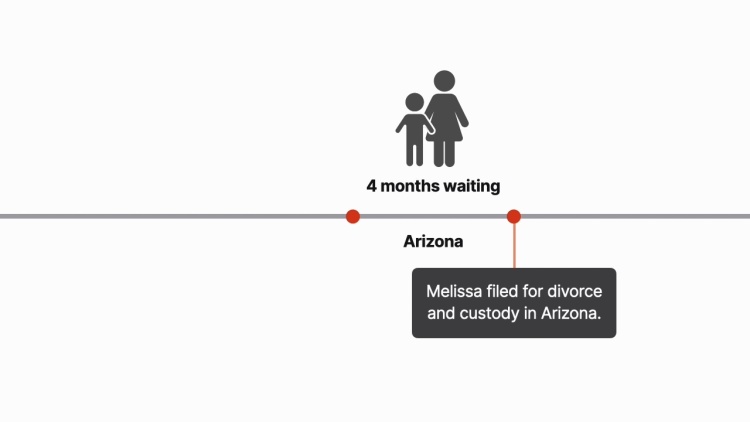Welch-Doden v. Roberts
Arizona Court of Appeals
202 Ariz. 201, 42 P.3d 1166 (2002)

- Written by Denise McGimsey, JD
Facts
In 1996, Melissa Welch-Doden (mother) (plaintiff) and Terry Welch-Doden (father) (defendant) wed in Arizona. When they could not find work there, they moved to Oklahoma, where their child was born in 1999. For the next seven months, the family lived together in Oklahoma. The mother and child then began to move back and forth between Oklahoma and Arizona. They lived in Arizona for three months from December 1999–March 2000, in Oklahoma for six months from March 2000–September 2000, then back in Arizona from September 2000 on. The mother’s stays in Arizona were purportedly for the purpose of finding work. She asserted that the couple’s intent was to move back to Arizona permanently. On January 25, 2001, the mother filed for divorce and custody in an Arizona court. On February 8, 2001, the father filed for divorce and custody in an Oklahoma court. In August 2001, the Arizona court ruled that Oklahoma had home-state jurisdiction over the child’s custody. Accordingly, the Arizona trial judge dismissed the mother’s petition. In September 2001, the Oklahoma court granted a divorce and awarded custody to the father. In the Court of Appeals of Arizona, the mother filed a special action against the trial judge (defendant) and requested that the dismissal of her petition be stayed. The court granted a stay pending its decision in the matter.
Rule of Law
Issue
Holding and Reasoning (Barker, J.)
What to do next…
Here's why 904,000 law students have relied on our case briefs:
- Written by law professors and practitioners, not other law students. 47,100 briefs, keyed to 995 casebooks. Top-notch customer support.
- The right amount of information, includes the facts, issues, rule of law, holding and reasoning, and any concurrences and dissents.
- Access in your classes, works on your mobile and tablet. Massive library of related video lessons and high quality multiple-choice questions.
- Easy to use, uniform format for every case brief. Written in plain English, not in legalese. Our briefs summarize and simplify; they don’t just repeat the court’s language.





